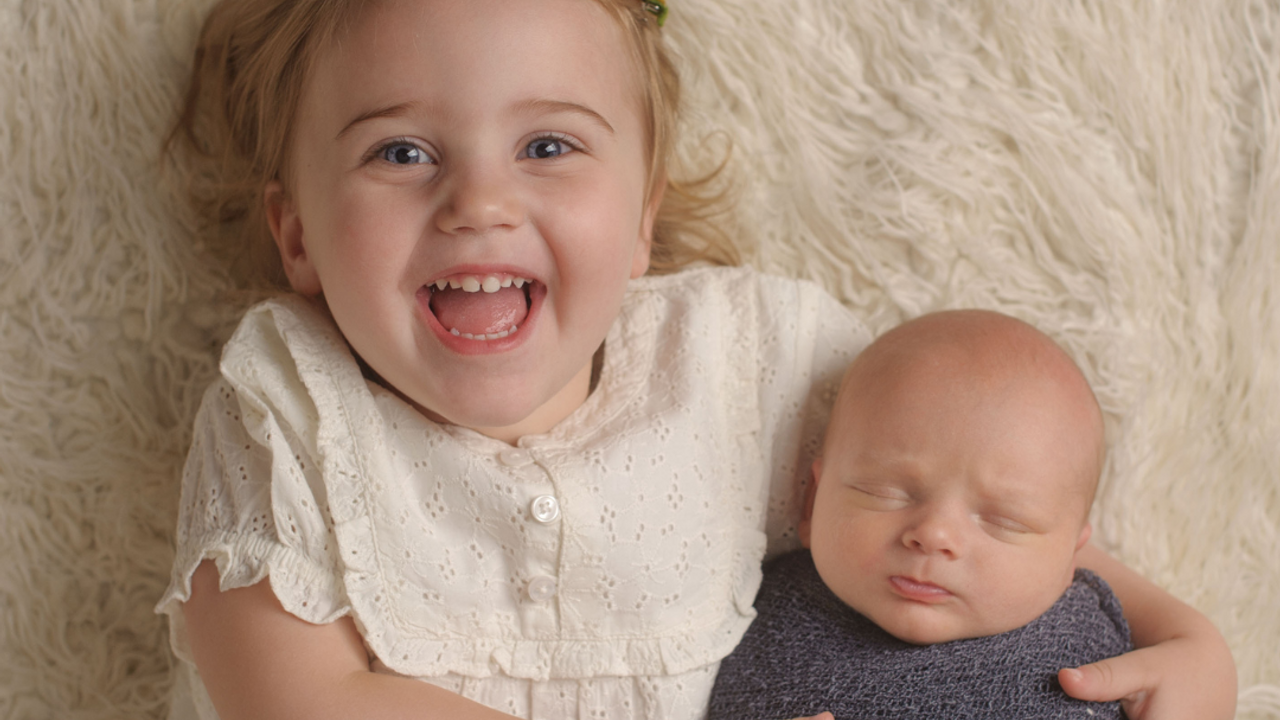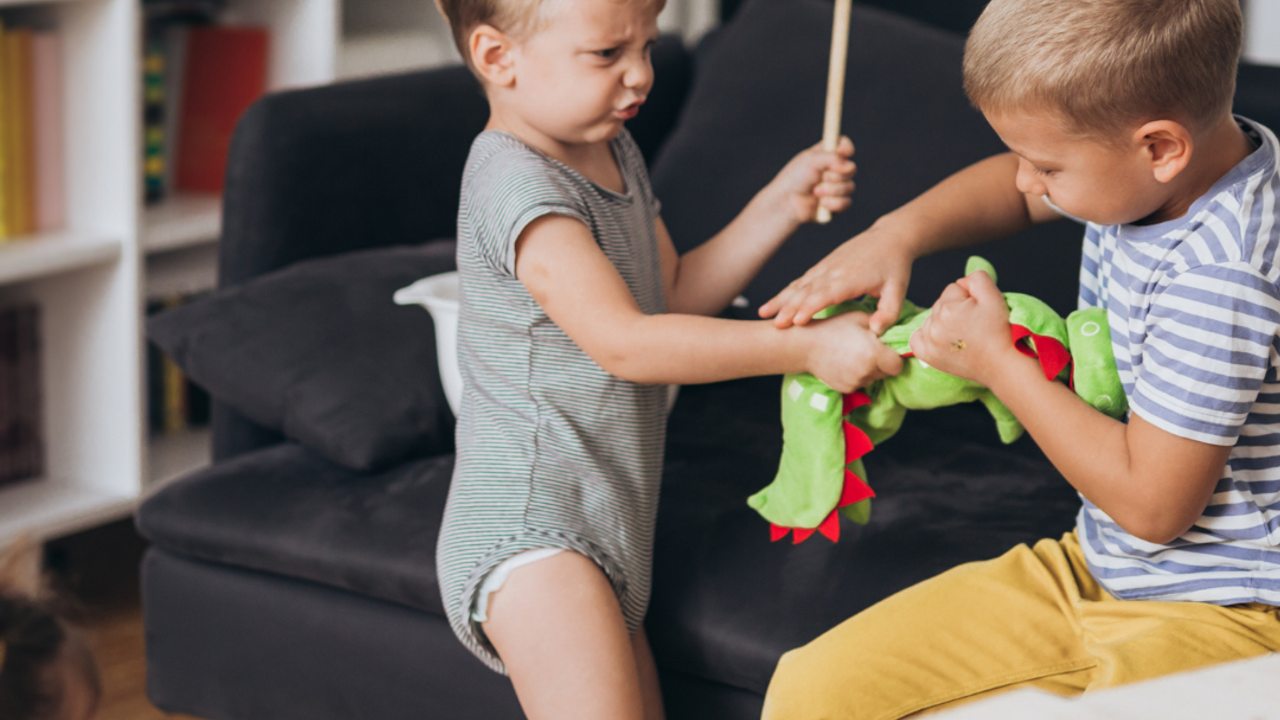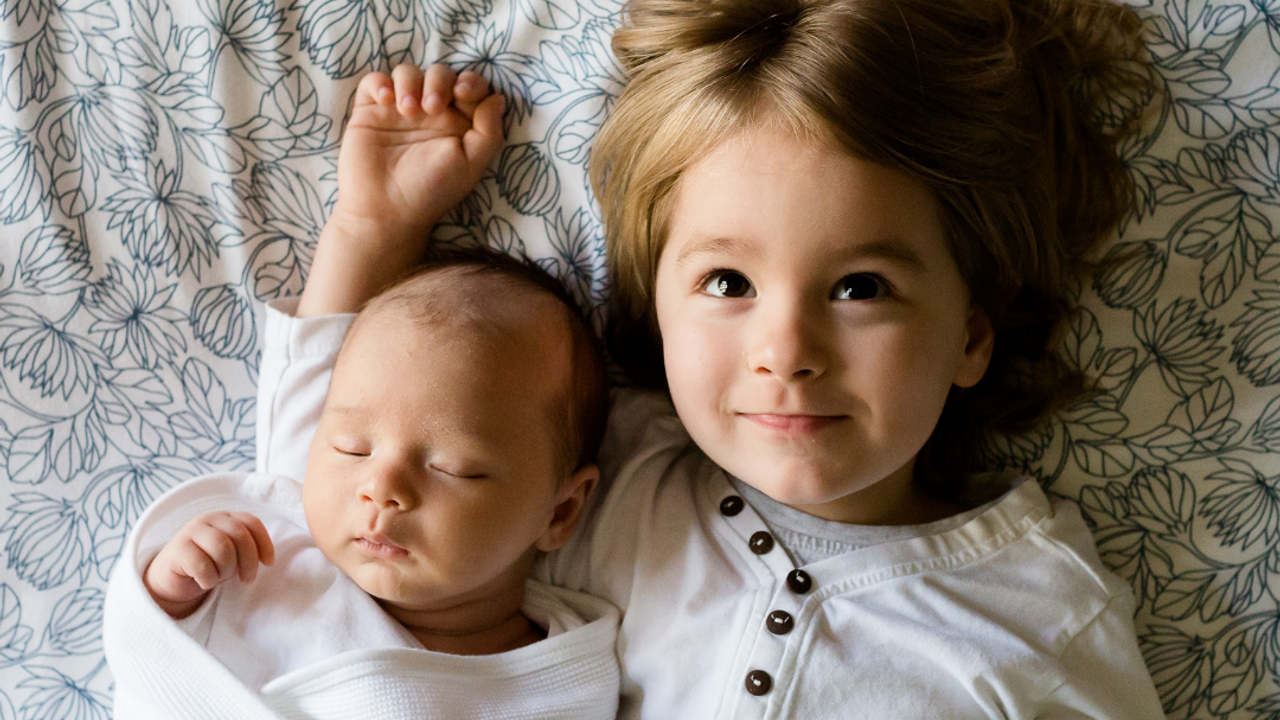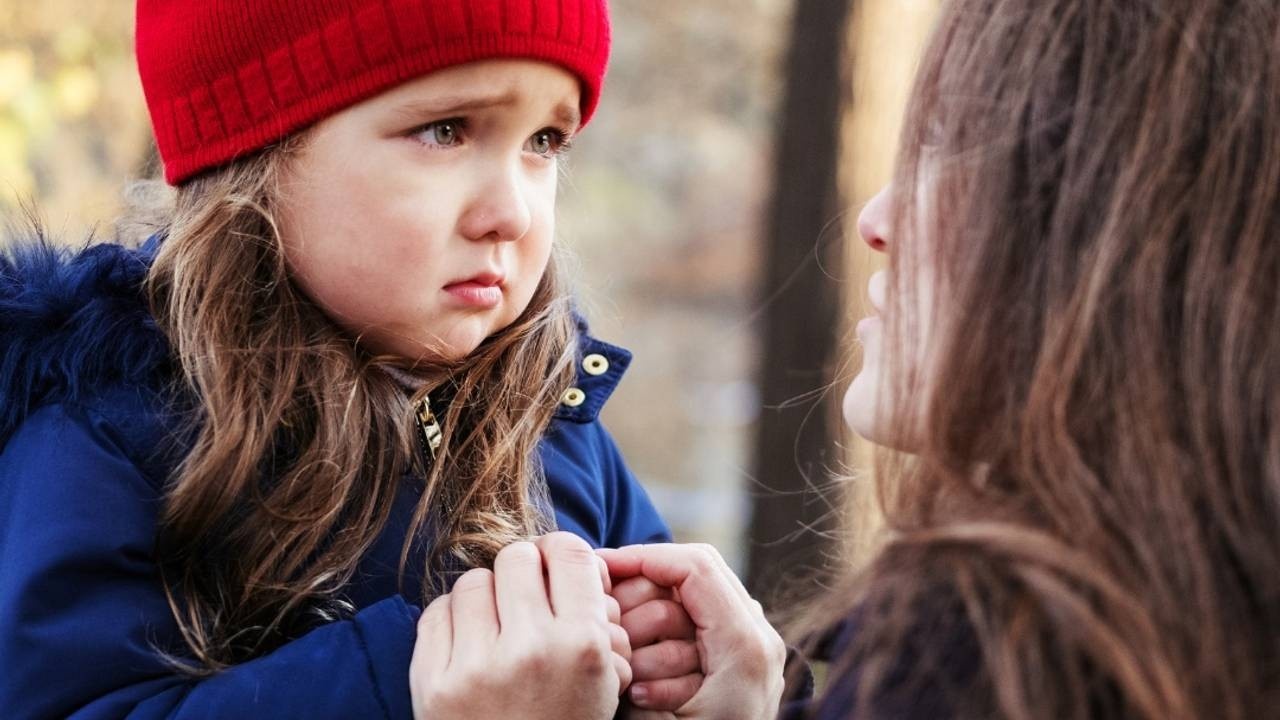That magic first hello - How to set up the perfect meeting between an older child and a newborn.

One of the things parents expecting a second baby are often visualising in the lead up to the birth is the moment their older child and newborn will meet for the first time.
Chubby toddler hands gently holding onto the clear hospital crib looking at their new sibling, a magic moment that many mums picture though the nine long months of pregnancy and all of its ups and downs.

After all, one of the reasons we have more than one child is often because we want to provide a sibling for our older child.
Our subconscious vision is for siblings who will be allies for life, a shoulder to cry on, someone to help you move house, and share adventures with. A friend who will always be there.
In addition, something rarely talked about is how a mother may be feeling in this moment. Her first child is the baby that opened up her heart to motherhood and the idea of another person being able to hold as much space can feel overwhelming.
Many mums feel anywhere from a tinge of sadness to a great w...
“Don’t have the baby in your arms” and other advice we give to parents expecting a second baby.

When I had my second baby I had read and heard two things about smoothing the transition for my older son:
-
Don’t have the baby in your arms when your older child visits in hospital, and
-
Get him a present from the baby.
It seemed reasonable and that was the full extent of my preparation to becoming a mum of two.
If you asked me now, was that enough preparation? I would say no.

It’s not that these things are wrong, it’s that I wasn’t aware of how big the transition would be for my child and how to help him. Without this understanding when his behaviour got tricky (which is so normal at two, or three or four) I viewed the problem as his behaviour – not the need for connection with me.
I survived the year that followed the birth of my second child. Just.
Then I watched friends struggle though, and now through my work so many parents tell me that their experience was the same as mine: Hard, lonely and confusing.
Many parents report feeling like their older child had...
Expecting another baby? Five ways to make your child feel seen, heard, secure and loved.

The addition of a new baby into a family is always a big change: but a second, or third baby can be a particularly rocky transition for the child that used to be ‘the baby’.
The older child, very often a toddler - has just had their world ROCKED but doesn’t have the words to wrap around how they are feeling.
Parents are adjusting as well. There is increased sleep deprivation, physical healing, increased pressure on relationships, and often with one parent needing to take time off to care for the baby there is increased financial pressure as well.
Despite all of this pressure every single parent I meet though my work is so focussed on helping their older child with the adjustment, the number one question they want to know is: ‘how can I make sure my older child doesn’t feel left out?
The answers lie in connection, boundaries and being with big feelings. Here are my top five tips:
1. Ease up on the ‘talk’ and focus on connection
Generally in the lead up to a new baby parents star...
Surviving sibling struggles - Five tips for parents who want to calm the chaos

Most parents will be familiar with the sound of siblings fighting, bickering and squabbling; the build up of tension is often audible from another room, soon enough one child is yelling, “THAT’S MINE!” …. The scream and then very often…. a WHACK.
When I work with parents of two or more kids and ask about the thing they are struggling with the most in their family life the number one answer is siblings fighting.
One of the greatest hopes many parents have is for their children to be friends. Beyond not enjoying the constant sound of screaming & bickering on a day-to-day basis many parents share a deeper hope that the humans they’re raising will - one day - be there for each other when we are not.
Our subconscious vision is for siblings who will be allies for life, a shoulder to cry on, someone to help you move house, share adventures with and even be a best man or maid of honour at a wedding.
A friend who will always be there.
And then we find ourselves knee deep in pare...
Featured in Kidspot "I didn't get how hard it really was to introduce a toddler and a baby"

Published in Kidspot this month, Genevieve's tips for welcoming a second baby.
When I had my second baby I had heard only two things were needed for a smooth transition - don’t have the baby in your arms when your older child visits in hospital and get him a present from the baby.
This advice is at best not helpful, and at worst leaves you completely unprepared for the changes at play when introducing a new baby into the house.
What I wish someone had told me was that the introduction to a new baby isn’t about the union in hospital, it is about connection, boundaries and spending time with your toddler. For more click here
‘I’m a mum of 4 boys. These are the questions I get asked constantly.’

As published on MAMAMIA
Shortly after I had given birth to my third son, I went up to the local post office to collect a package.
I was at the counter with my three- and five-year-old boys, and my newborn asleep in the pram.
Just quietly I was feeling pretty freaking proud to be out, with THREE kids in a post office (which, if you ask anyone who has had three under five, is no mean feat.) Life was good.
“Is it a boy or a girl?” The lady serving me asked, eyeing my two boys and the pram.
I proudly drew back the muslin wrap to reveal my beautiful bundle and said: “This is Tom!”
The look on the woman’s face was pure disappointment. She grabbed my hands in hers, looked at me with big sad eyes and said: “Don’t worry, you are young, and you can try again!"
I immediately looked down at my two older children. Two beautiful creatures who were standing by their new baby brother, with a fresh look of doubt in their eyes.

Gen with her four boys today photo credit Tess Donohue Photogra...
It’s just the toast: Three things all parents should know about newborn crying

The creator of Calmbirth, Peter Jackson, once told me something I’ve never forgotten.
He said ‘the sound of a newborn crying can be likened to the sound of a smoke alarm going off. They make the same sound whether you’ve burnt the toast or the whole kitchen is on fire.’
I spent the next decade soothing four boys while they cried saying to myself…….. “it’s just the toast.”
This seemed to help me to feel less panicked when my babies cried.
What I know also helps parents is knowing what’s “normal” and what to expect in terms of baby crying.
The average healthy newborn cries around 1-2 hours a day at birth, yet many new parents find this level of crying pretty rattling – especially when it’s happening in the middle of the night as is most common in the first weeks .
Tracking forward a few weeks what many parents don’t know is that the peak of infant crying is around weeks 6-8 at which point the average healthy newborn baby will cry for around 3-4 hours a day, usually in the...
Dear new parents, it’s not your job to ‘fix’ your baby’s crying.

One of the most challenging aspects of the first few months of parenting a newborn is infant crying.
Most parents I meet who have just had their first baby say that nothing could have prepared them for how the sound of their own baby crying would make them feel. They describe feelings of helplessness, fear and frustration when their babies cry.
Our babies’ cries are designed by nature to sound distressing to us. This ensures we wake in the night to feed and care for them. But the view we hold about whether crying is normal, and what our role is when responding to crying affects how much the crying distresses us.
For a variety of reasons, well before they even hold their own newborn, parents have often absorbed the message that when a baby cries it’s the parent’s job to work out what’s wrong … and fix it.
This is probably the most unhelpful message we can give parents about crying because it makes parents feel more distressed when they are unable to stop their babies from cryin...
Why all kids struggle with transitions

All kids struggle with transitions.
These can be the daily struggles of moving from the dinner table to the bath, or the bigger changes that impact our child's sense of security like a house move, daycare change, or the big one - welcoming a new baby into the family.
The struggle that kids have with transitions and change points happens for a for a variety of reasons, but know this:
It is so normal for it to be a daily battle getting kids into the car, out of the bath and all the rest. It is our children's job to struggle with these moments, the struggle is how they grow their brains. It is our job to be bigger, stronger, wise and kind - all the things they need to support them with transitions.
Tips for daily transitions.
We all know that feeling. It's time to get in the car and your child is really enjoying some LEGO. You know what is coming when you tell them to stop doing what they enjoy and get in the car..... As hard as this is for parents our job isn't to stop these feel...
Why parents need to embrace the word no

As published on The Parenthood - Genevieve explores how we set an effective boundary for our kids.
"When we prioritise our kids’ freedom or happiness – but overlook our kids’ crucial need to feel like their parents are in charge and “at the wheel” – we are letting them down. Too much freedom, and a lack of limits actually makes children feel the opposite of free. When this occurs enough they often express their discomfort through limit-pushing behaviour.
Boundaries are essential for children, and also for parents, who are overwhelmed and exhausted and wondering if it’s meant to be THIS hard. As an educator working with parents around creating a secure attachment with babies and kids, and as a mum of four beautiful boys, I believe that boundaries are one of the highest forms of love there is.
So how do you set a boundary?
Let’s say your child is at a boundary moment. They are swinging from the rafters, throwing a toy, hitting or hurting. This isn’t working for you, it is hurting ...

